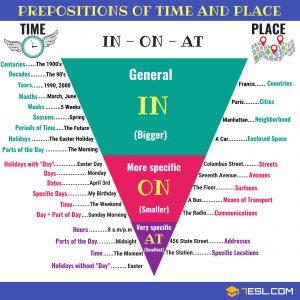F2F Class Notes (Nemo)[W]
Grammar
Past Perfect Continuous-an action started in the past and continued up to another point in the past
The past perfect continuous is formed using had + been + present participle. Questions are indicated by inverting the subject and had. Negatives are made with not
Statement: You had been waiting there for more than two hours when she finally arrived.
Question: Had you been waiting there for more than two hours when she finally arrived?
Negative: You had not been waiting there for more than two hours when she finally arrived.
Duration Before Something in the Past
We use the past perfect continuous to show that something started in the past and continued up until another time in the past. “For five minutes” and “for two weeks”, the duration does not continue until now, it stops before something else in the past.
They had been talking for over an hour before Tony arrived.
She had been working at that company for three years when it went out of business.
How long had you been waiting to get on the bus?
Mike wanted to sit down because he had been standing all day at work.
James had been teaching at the university for more than a year before he left for Asia.
A: How long had you been studying Turkish before you moved to Ankara?
B: I had not been studying Turkish very long.
Using the past perfect continuous before another action in the past is a good way to show cause and effect.
Examples:
Jason was tired because he had been jogging.
Sam gained weight because he had been overeating.
Betty failed the final test because she had not been attending class.
Present Perfect Continuous
The present perfect continuous -an action started in the past and has continued up to the present moment. The present perfect continuous usually emphasizes duration, or the amount of time that an action has been taking place.
The present perfect continuous is formed using has/have + been + present participle. Questions are indicated by inverting the subject and has/have. Negatives are made with not.
Statement: You have been waiting here for two hours.
Question: Have you been waiting here for two hours?
Negative: You have not been waiting here for two hours.
Duration from the Past Until Now
We use the present perfect continuous to show that something started in the past and has continued up until now. “For five minutes,” “for two weeks,” and “since Tuesday” are all durations which can be used with the present perfect continuous.
Examples:
They have been talking for the last hour.
She has been working at that company for three years.
What have you been doing for the last 30 minutes?
James(he) has been teaching at the university since June.
We have been waiting here for over two hours!
Why has Nancy not been taking her medicine for the last three days?
2-You can also use the present perfect continuous WITHOUT a duration such as “for two weeks.” Without the duration, the tense has a more general meaning of “lately.” We often use the words “lately” or “recently” to emphasize this meaning.
Examples:
Recently, I have been feeling really tired.
She has been watching too much television lately.
Have you been exercising lately?
Mary has been feeling a little depressed.
Writing exercise
October 1st is national of all our country. In this year is the found a state for 70 years. In October 1st will have military parade in Tiananmen Square. On October 1, 1949 is the first national day.
Premier Zhou said fly twice when the first national day ceremony plants are not enough. Now don’t need to fly twice, want how much have how much! This time, as you wish.
I love watch the military parade not only like to see the solider but also like see the change of country.
October 1st is national day┬а of all our entire country. this year we’re celebrating 70th anniversary of the People’s Republic of China. On October 1st there’s going to be a military parade in/on Tiananmen Square. On October 1, 1949 China celebrated it’s first national day.
Premier Zhou said during the first parade “If the plane is not enough, we’ll fly twice” . Now we don’t need to fly twice, now we have everything that we have ever wished for-чО░хЬицИСф╗мцЛецЬЙф║ЖцИСф╗мцЙАх╕МцЬЫчЪДф╕АхИЗ
I love to watch the military parade not only like to see the soldiers marching but also I like see the change/ prosperity of of/in country.
Vocabulary
entire (adj): whole or complete, with nothing missing
хЕищГичЪДя╝ЫцХ┤ф╕кчЪДя╝ЫхоМхЕичЪДя╝ЫхоМцХ┤чЪД
Between them they ate an entire cake.
ф╗Цф╗мф╕дф╕кхРГф║ЖцХ┤цХ┤ф╕Аф╕кшЫЛч│ХуАВ
He’d spent the entire journey asleep.
ф╗ЦцХ┤ф╕кцЧЕчиЛщГ╜хЬичЭбшзЙуАВ
this year we’re celebrating 70th anniversary of the People’s Republic of China
prosperity(n): the state of being successful and having a lot of money
цИРхКЯя╝Ыя╝Их░дцМЗч╗Пц╡Оф╕КчЪДя╝Йч╣БшНгя╝МцШМчЫЫ
A country’s future prosperity depends, to an extent, upon the quality of education of its people.
ф╕Аф╕кхЫ╜хо╢цЬкцЭечЪДч╣БшНгцШМчЫЫхЬиф╕АхоЪчиЛх║жф╕КхПЦхЖ│ф║ОхЫ╜ц░СчЪДцХЩшВ▓ш┤ищЗПуАВ
The war was followed by a long period of peace and prosperity.
цИШф║Йш┐ЗхРОцШпщХ┐цЧ╢щЧ┤чЪДхТМх╣│ф╕Оч╣БшНгуАВ
emphasize (v): to show that something is very important or worth giving attention to
х╝║ш░Гя╝ЫщЗНшзЖ
I’d just like to emphasize how important it is for people to learn foreign languages.
цИСхПкцШпцГ│х╝║ш░Гф╕Аф╕Лхнжф╣ахдЦшпнчЪДщЗНшжБцАзуАВ
He emphasized that all the people taking part in the research were volunteers.
ф╗ЦчЭАщЗНцМЗхЗ║цЙАцЬЙхПВхКаш┐Щщб╣чаФчй╢чЪДф║║щГ╜цШпх┐ЧцД┐шАЕуАВ
You can use italics or capitals to emphasize a word in a piece of writing.
ф╜ахПпф╗ечФицЦЬф╜УцИЦшАЕхдзхЖЩцЭех╝║ш░ГцЦЗчлаф╕нчЪДцЯРф╕кшпНуАВ




Comments are closed.